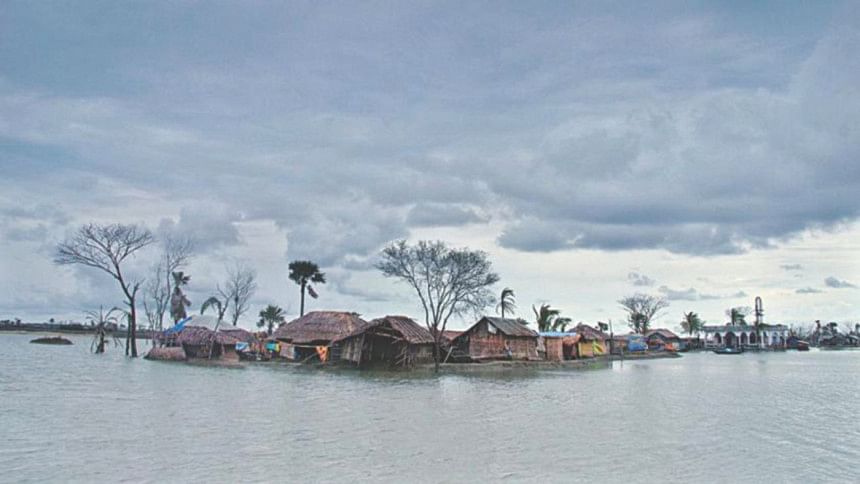COP21: What's next for Bangladesh?

As global leaders reached an agreement at the conclusion of COP21, international cooperation for addressing climate change has solidified at a crucial moment in time. Although the negotiations were watched with trepidation by many who feared that the countries would not be able to come to an agreement, the 21st Conference of the Parties to the UN Framework Convention on Climate Change has delivered a landmark accord. With the endorsement of 196 countries, the Paris Agreement becomes the first universal climate deal and a crucial instrument to limit and mitigate the negative impacts of climate change.
One of the defining challenges of our time, climate change is increasingly felt by countries and communities the world over. The effects of climate change are already hitting those most vulnerable. In Bangladesh, climate shocks and stresses are already damaging assets, undermining livelihoods, and displacing people from their homes. The Agreement reached in Paris marks a turning point on how the world will address climate change.
The Agreement sets the world on a pathway toward limiting temperature rise to less than 2 degrees, with an eye on the benefits of achieving the goal of 1.5. The Paris Agreement is also an ambitious, dynamic, and universal agreement. It covers all countries – developed and developing – and all emissions, and is designed to last.
The Paris Agreement sends a message to the world that countries are serious about addressing climate change. Where the Kyoto Protocol only required certain countries to cut emissions, the Paris Agreement requires all countries to take action, while recognising their differing situations and circumstances. Responsible for taking action on both mitigation and adaptation, countries have officially submitted their own nationally determined climate action plans, including cutting emissions. They now have an obligation to implement these plans, and if they do, it will bend the curve downward in the projected global temperature rise. The individual contributions of states all over the world will be crucial to highly exposed countries like Bangladesh, where climate change effects, like rising sea levels and changing cyclone patterns, are already felt.
The Agreement not only formalises the process of developing national plans for addressing climate change, it provides a binding requirement to assess and review progress on these plans at least every five years. This mechanism will require countries to continuously upgrade their commitments and ensure that there will be no backtracking. The Agreement will be a key instrument for mobilising global partnerships. To this end, developing countries have assumed increasing responsibility to address climate change in line with their capabilities, while developed countries have agreed to lead in scaling up technology support and capacity building and mobilising finance. This includes the continuation of the existing $100 billion per year flow of funds for climate finance beyond 2020, with the intention of improving it further by 2025. For Bangladesh, which is already mobilising access to funds from the Green Climate fund to build the resilience of communities along the coasts and in other climatic hotspots, this is good news indeed.
Bangladesh has already intensified its efforts to integrate the Sustainable Development goals into its seventh five year plan, with Goal 13 – to take urgent action to combat climate change and its impacts – as a key national concern. The agreement reached this week calls for the support of the UN agencies to countries in implementation. In line with this, the UN will continue to support the Government of Bangladesh with high quality policy advice and programme support. The Paris Agreement confirms the necessity for Bangladesh to both take action to adapt to keep lives and livelihoods safe in a changing climate, and to adopt a low-emission economy to continue growing as a prosperous country.
Now is the time for markets to invest in the low-emission economy and to move away from fossil fuels in order to minimise the loss and damage from climate change. The Paris Agreement represents a unique opportunity for Bangladesh and the rest of the world to move towards a global transformation that will help to safeguard our planet for generations to come.
The writer is the UN Resident Coordinator in Bangladesh.

 For all latest news, follow The Daily Star's Google News channel.
For all latest news, follow The Daily Star's Google News channel. 



Comments